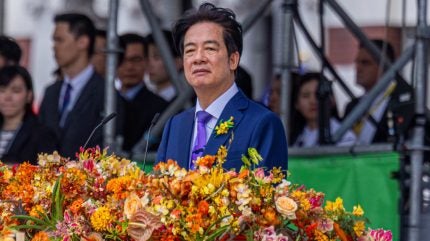
China has banned the import of Taiwanese fruit, vegetables, seafood and other goods, in the latest event to escalate tensions between China and Taiwan. Taiwanese officials have called the actions “economic coercion.”
The Taiwan Mainland Affairs Council said the ban violates World Trade Organization (WTO) rules. China and Taiwan are members, and it is the only major international organisation where Taiwan is a full member. China’s influence and diplomatic power have prevented Taiwan from joining other international bodies like the UN. The WTO does not require its members to be states.

Discover B2B Marketing That Performs
Combine business intelligence and editorial excellence to reach engaged professionals across 36 leading media platforms.
The move occurs as tensions between the powers run high. Recently, China has strengthened military, political and economic pressures on Taiwan to cede power to Beijing.
Taiwan’s Mainland Affairs Council said the move was “yet another act of economic coercion against Taiwan, which hurts the interests of farmers and fishermen across the Taiwan Strait and will only result in resentment from farmers and fishermen and the general public in Taiwan.”
The spokesperson for China’s Taiwan Affairs Office, Chen Binhua, said that these tariff exemptions had been beneficial to Taiwanese farmers, since they had given them access to the Chinese market.
Binhua blamed the recently elected leader of Taiwan, President Lai Ching-te, for his “stubborn adherence” to a pro-independence stance.

US Tariffs are shifting - will you react or anticipate?
Don’t let policy changes catch you off guard. Stay proactive with real-time data and expert analysis.
By GlobalDataBeijing has firmly stood against Lai since he came to power. After Lai’s inaugural address, China called his words a “dangerous signal of provocation.” The new leader was more explicit about his stance on Taiwanese sovereignty than his predecessor, who had taken a more cautious approach. In the speech, Lai said, “This tells us clearly: the Republic of China [Taiwan] and the People’s Republic of China are not subordinate to teach other.”
The decision follows China’s sanctions on nine US-linked military firms for selling equipment to Taiwan in what it called a “dangerous trend” of military support for the island.
China’s economic coercion
China has been accused of economic coercion in the past by countries including Australia, South Korea, Canada and Lithuania.
In November 2021, Lithuania opened a “Taiwan Representative Office” in Vilnius. The use of the name Taiwan, rather than the more politically abstract Taipei, unleashed a diplomatic crisis. The move was heavily criticized by Chinese diplomats and, seemingly overnight, China started blocking Lithuanian exports.
At the time, the president of the Lithuanian Confederation of Industrialists said, “Chinese customs no longer list Lithuania is its list of origin countries. So customs forms for cargoes from Lithuania cannot be filed.”
Comparable narratives have unfolded in the past such as when Australia called for a COVID-19 investigation, when a Huawei executive was detained in Canada, and when China urged its population to boycott South Korean businesses.
Evidently, the situation with Taiwan is far more sensitive. China sees the territory as a breakaway province that will eventually be fully reintegrated, with force if need be. Taiwan largely sees itself as independent, given they have their own constitution and democratic elections.




